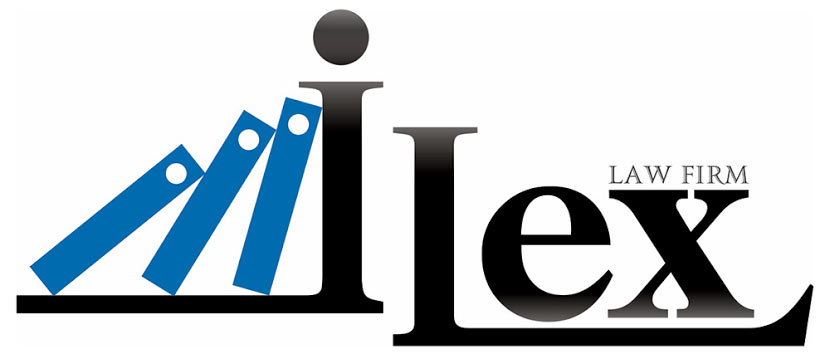Failure to use as a legal ground to Cancel the registration of the trademark ‘’McDonald’’
The discussion of the matter of cancelling the trademark McDonald in the Court of Cassation of the Republic of Armenia, on the basis of failure to use of the mark.
In 2014 WEST LLC company registered in the Federation of Russia, has submitted a number of applications to the Administrative Court of RA, requesting to cancel the registrations of the trademarks owned by McDonalds Corporation (Mcdonald’s Corporation, a Delaware Corporation) and registered by the Agency of the Intellectual Property of the Republic of Armenia (McDONALD'S, RONALD McDONALD, БольшойМак, BIG MAC-registrations were maintained in 1999).

The Article of the Convention establishes that, in any country, use of the registered mark is compulsory, the registration may be cancelled only after a reasonable period, and then only if the person concerned does not justify his inaction.
This paragraph of the Convention is reflected under the 2nd paragraph of the Article 17 on 'the Law on Trademarks'' of RA, according to which, the registration of a trademark may be cancelled , on the basis of court decision as a result of hearing of a claim filed by any person, where within a continuous period of five uninterrupted years after the date of the registration of the trademark or in case of filing the claim (counter claim) at a later date, the proprietor or the person entitled by this Law has not put the trademark to genuine use during an uninterrupted period of five years immediately preceding filing the claim or the counter claim. The evidence on the use of the trademark shall be presented by the right holder or the person having a right to use that trademark according to this Law.
This on terms of the Paris Convention In Armenia ‘’as a fair period to use’’ is considered to be a period of five years, after the end of which the basis of the corresponding convention of cancelling the registration of the trademark may apply, and the brand McDonald is up till now not presented in the market of RA. It is considerably, that the Russian company has achieved success in the Administrative Court օof first instance and managed to cancel the registrations owed by the Corporation of McDonalds in the area of RA on the basis of the same failure to use. The Administrative Court of Appeal also reaffirmed the decision of the Administrative Court of RA.
However, the Court of Cassation, accepting to proceeding the appeal submitted by McDonald's Corporation, touched upon the appeal on a completely different respective of the legal grounds, not concerning the fact of using the trademark in the area of RA, in essence pursuing the objects of development of the law and the protection of international brand.
Which court should examine the case: whether the proceeding taken on the basis of canceling the registration of the trademark on the basis of failure to use, is under the juridiction of the Administrative Court or of the Court of General Jurisdiction?
By analyzing existing legal regulations and observing failure to use of the tradmark on the number of exceptions prescribed by the law, when not accesing the own rights by a person leads to the termination of a right and at the same time signifying its legal protection in the Republic of Armenia mentioned that the trademark is an object of intellectual property, and the right of the intellectual property is protected by the law on the force of the constitutional norm. The Cassation Court cited also the legal position expressed in the precedential right of the Human Rights European Court referring to the 1st Article of the 1st Protocol of the Convention, which essentially is applicable for the intellectual property (''Anhojzer-Bush ink'' Company against the decision of HREC 11.01.2007 on the case of Portuguese). The Cassation Court stated, that the cases submitted on the ground of the claim of cancelling the registration of the trademark don't follow from the case arising from the public legal relations and are not under the jurisdiction of the Administrative Court. In other words the cases submitted on the ground of the claim of cancelling the registration of the trademark follow from the argument arising from private, public legal relations and are under the jurisdiction of Court of General Jurisdiction (Whereas the case has been examined in the Administrative Court…)
On another ground, it has referred to the matter of having a right to apply to a court: it's apparent, the law has given an opportunity of cancelling the trademark to everyone on the ground of failure to use, but does it suppose that everyone is competent to apply a case to a court on that ground?
Who can apply to a court on a claim of cancelling the registration of a trademark on the basis of failure to use?
The appropriate norm of the law preserves the right of applying to a court on the basis of abandonment to ''everyone''.
In terms of the rights to apply to the court for the cancellation on this ground by any person the Court ruled that, the rights to apply by any person shall be viewed under the principle whether the same person is legally entitled to. i.e., it can't been followed from the legal regulation of reserving ''everyone'', that in the case of absence of a legal interest a person can expect judicial protection. In any case court protection is provided for rehabilitation of infringed rights whether the disputes are related with private legal relations or from public legal relations. Besides, the right of juridical protection can't be end in itself, and a person can't apply to a court, if an infringement or a danger of infringement of the ''legal (real )'' rights of the latter doesn't exist.
That's it, the Russian company is under the obligation to submit evidences in the Court of General Jurisdiction that the cancelling of the trademark leads to the rehabilitation of it's infringed rights, taking the negative results of it's non-fulfillment: so, what kind of implementation will get this interpretation will be evident during the practical action of the law.
